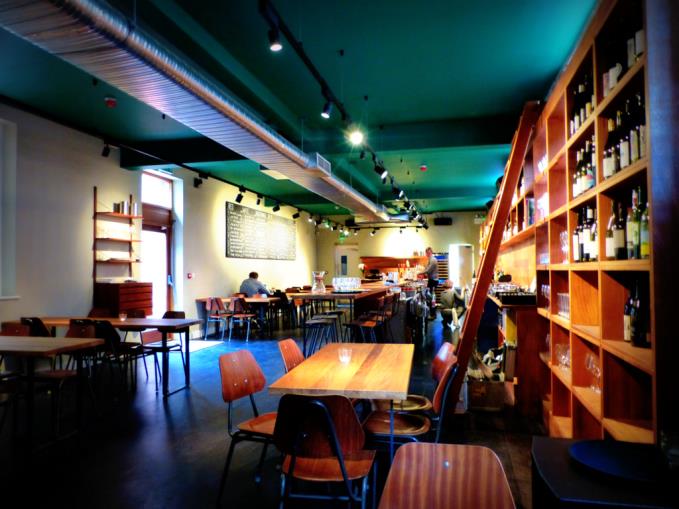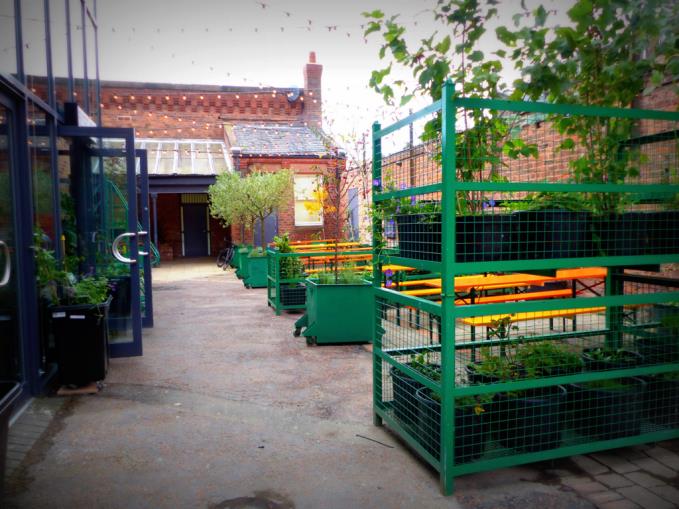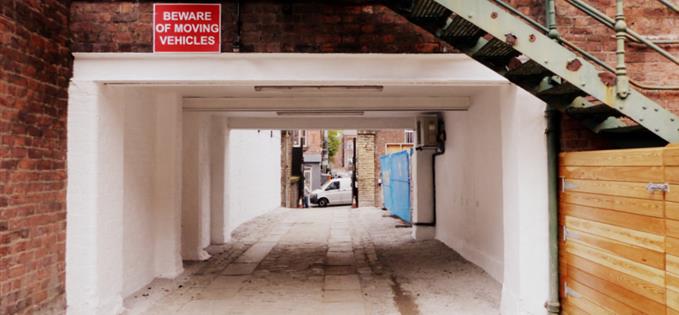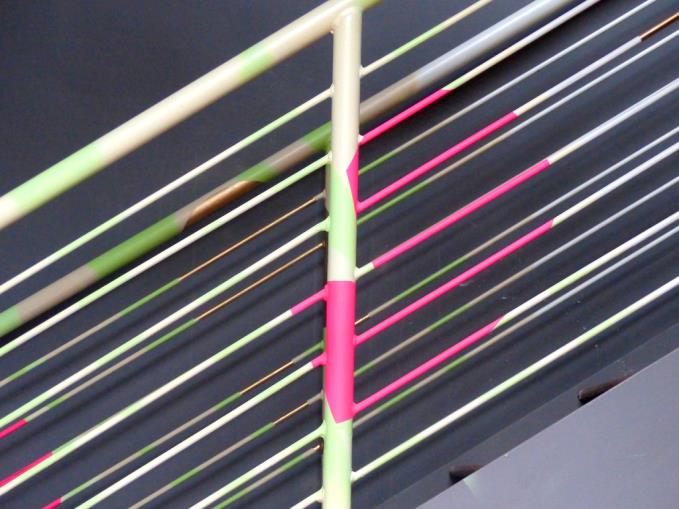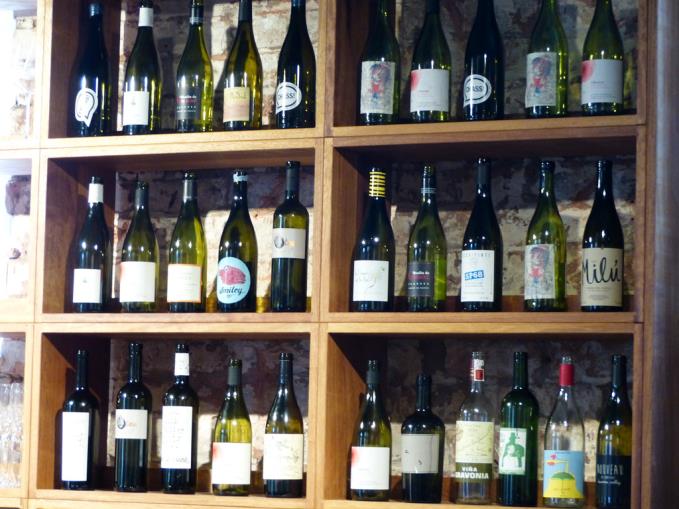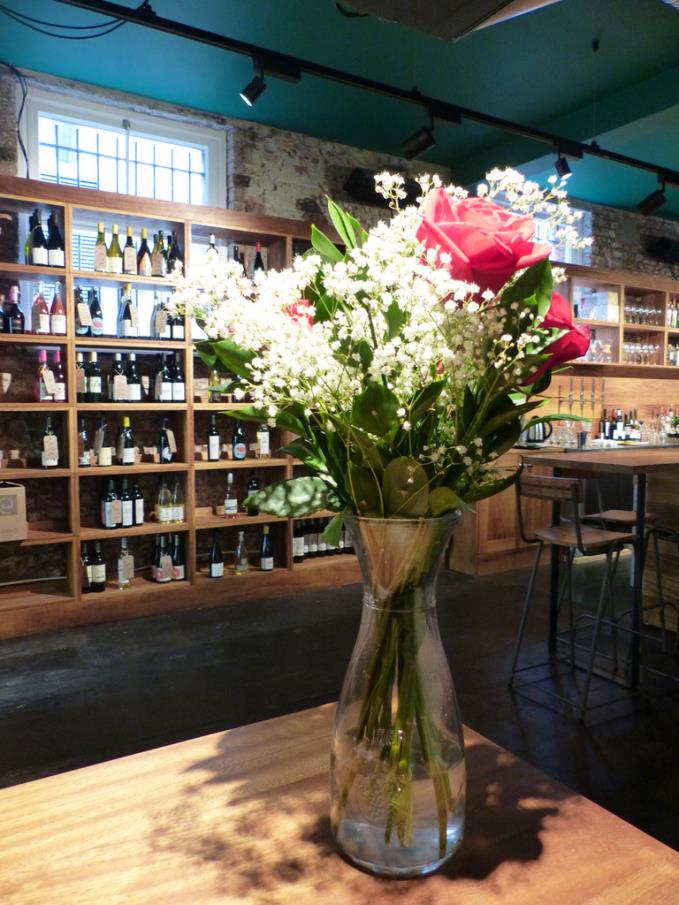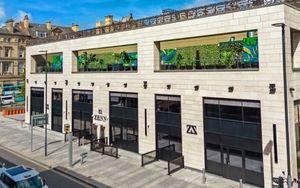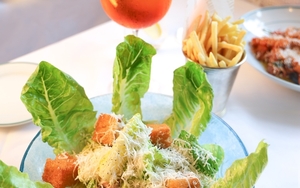AS one of the founders of Urban Splash, Miles Falkingham is no stranger to turning deserted properties around.
And the award winning architect has clearly enjoyed his involvement with the Camp & Furnace so much that he has come back for more. The Buyers Club has just opened for business, filling the entire two floors of the late lamented Flying Picket, empty and unloved for the past 10 years.
Falkingham is flanked by plenty of skill in this joint stakeholder venture: Abandon Silence club night promoter Andrew Hill; Bold Street Coffee’s Sam Tawil making his debut into the night time of things; in the kitchen, chefs Daniel Heffy and Michael Harrison, ex of the London Carriageworks and Italian Club Fish. All will be running different aspects of The Buyers Club which consists of a (so far) private dining room, bar, music venue and outdoor space which, in its early days, looks rather like a garden centre.
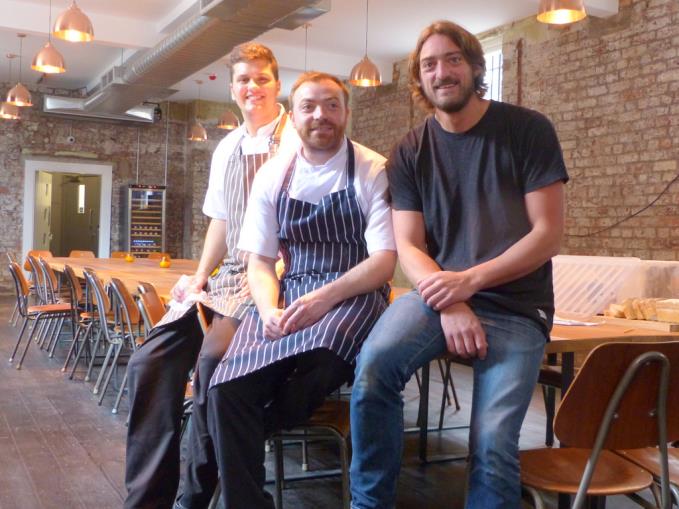 Daniel Heffy, Michael Harrison and Sam Tawil
Daniel Heffy, Michael Harrison and Sam Tawil Confidential wandered in on Day One, camera in hand. Spotted behind the bar were familiar faces from Bold Street Coffee - although “wine is the big thing here”, says Tawil. Thus his one time baristas were busy getting to grips with corkscrews, pouring and tasting notes as he, Hill and Falkingham, sat watchfully around a table in the corner.
Bottles
Naturally, the bar boasts a sommelier, recruited from London, up a ladder in deep concentration as he arranged an extensive array of bottles on bespoke wooden shelves. Wine pairings are proffered, by the glass, for the small menu of dishes which includes octopus, oysters and ox cheeks (AA Grill’s verdict very soon).
Upstairs, and with its own separate entrance, there is every sign that much missed venue will once again take its place in Liverpool’s music life which has moved on so much in the intervening decade.
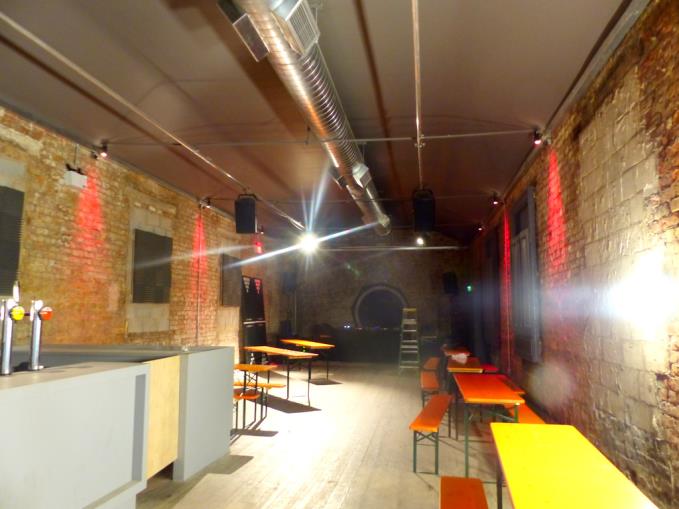 The old Picket venue upstairs gets a new look
The old Picket venue upstairs gets a new lookAs the room cranks back to life expect a fairly constant stream of club nights, DJ sets and groups.
From this Sunday at 5pm, stalwart record spinner Bernie Connor will be hosting Fresh Garbage, a weekly two-hour show from the venue.
And what larks is this? Fresh Garbage is to be broadcast live, over the web, here so you don’t have to move from your aspirational couch to experience The Buyer’s Club.
If that's you, sit back and view our first look pictures. Pop back on Sunday to hear the show. Whatever.
A powerhouse of music silenced for a decade
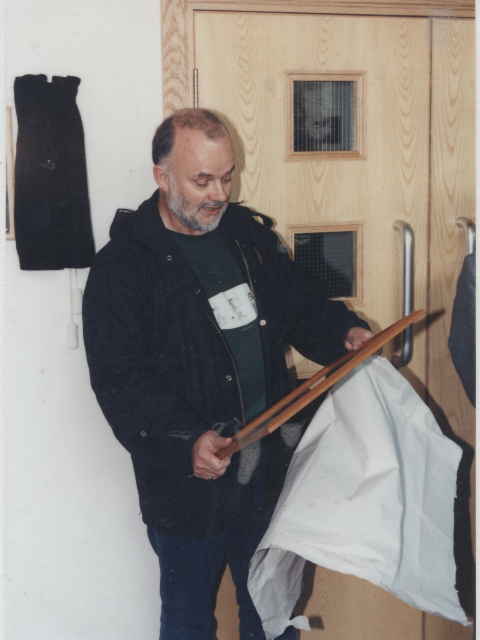 In the days when city centre living still whiffed of wildly aspirational, the Hardman Street building complex which housed The Flying Picket was a property developer’s dream.
In the days when city centre living still whiffed of wildly aspirational, the Hardman Street building complex which housed The Flying Picket was a property developer’s dream.
In 2004, the global financial crash was still three years away. Liverpool was preparing for its year as Capital of Culture. It was with some irony, therefore, that the idea of “luxury" apartments was mooted on the spawning ground of the La’s, The Coral and more.
The Flying Picket was part of the Merseyside Trade Union and Unemployed Resource Centre which opened in the Grade II listed building 20 years earlier.
Mounting debts and cuts in council funding forced its management commitee to sell to the highest bidder. Nevertheless, with founder Phil Hayes at the helm, The Picket put up a fight to stay. High profile supporters included the late John Peel (pictured), Paul Weller, Billy Bragg, Elvis Costello, Pete Townshend and Paul Weller whose band The Style Council launched it in 1984.
But they and others could gnash their teeth all they liked in the Guardian. Precisely what was not to like about a pad overlooking an attractive, cobbled mews quadrangle in a proper Georgian bit of quarter?
A wised up decade later, thousands on social networks and Change.org would likely be raging against the machine if you proposed closing down one of the country's best known music venues and recording studios for no good reason other than to stick some flats there.
As it happens, the flats didn't happen - but too late for The Flying Picket. Once it was gone, it was gone and for the next 10 years the only thing that remained of its bustling bars, recording studio and vibrant upstairs concert theatre were the nicotine stains, the smashed windows, the damp and the hollow silence.
End of Part One.
